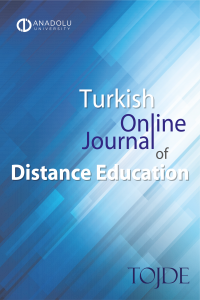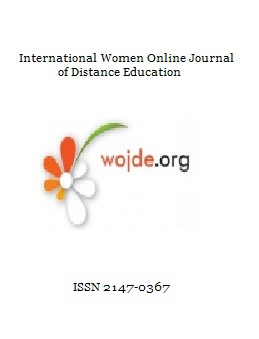
About intWOJDE
International Women Online Journal of Distance Education
(intWOJDE)
TURKEY
ISSN: 2147-0367
About the Journal
The International Women Online Journal of Distance Education (intWOJDE) is a peer-reviewed, open-access, international e-journal established in 2012. Published biannually (April and October), intWOJDE serves as a premier platform for the dissemination of theory, research, and practical strategies in the fields of distance education and open learning. While covering a broad spectrum of educational technology topics, the journal specifically emphasizes the participation, leadership, and unique challenges of women in these domains.
Aims and Scope
intWOJDE aims to promote gender equity, innovative educational strategies, and global research dissemination in Open and Distance Learning (ODL). The journal invites submissions that explore:
- Educational technologies and instructional design,
- Policy analysis in distance education,
- Women’s professional development and leadership in academia,
- Global challenges in e-learning and digital literacy.
The journal welcomes empirical studies, theoretical papers, case reports, and comprehensive literature reviews.
Open Access & Licensing Policy
intWOJDE is a fully Open Access journal. We believe that making research freely available to the public supports a greater global exchange of knowledge.
Licensing: All articles published in intWOJDE are licensed under the Creative Commons Attribution 4.0 International License (CC BY 4.0).
This license allows others to distribute, remix, adapt, and build upon the work, even commercially, as long as they credit the original creation. Authors retain the copyright to their work and grant the journal the right of first publication.
Publication Charges (APC)
No Fees: intWOJDE does NOT charge any article processing charges (APCs), submission fees, or publication fees. Publishing in this journal is completely free of charge for authors.
Peer Review Process
intWOJDE adheres to a rigorous Double-Blind Peer Review process to ensure the highest academic quality.
- Initial Screening: The Editorial Board assesses the manuscript for relevance and compliance with guidelines (approx. 21 days).
- Review: Suitable manuscripts are sent to at least two independent expert reviewers (approx. 90 days).
- Decision & Publication: Based on reviewer reports, the editor decides to accept, revise, or reject. Accepted articles are typically published within 180 days of submission.
Ownership and Management
intWOJDE is an independent scholarly journal. It is managed by an international Editorial Board and operates autonomously according to ethical publishing standards (COPE). The Editor-in-Chief coordinates operations from Anadolu University, Turkey.
Digital Preservation
To ensure permanent access to scholarly content, all published articles are archived on the journal’s official servers. Additionally, secure cloud-based backups are maintained to prevent data loss.
Indexing
intWOJDE is currently indexed/listed in: ACER, Arastirmax, Erih Plus, OAJI, SHERPA RoMEO, DRJI, and WorldCat.
International Women Online Journal of Distance Education (intWOJDE)
ISSN: 2147-0367 | Founded: 2012

This work is licensed under a Creative Commons Attribution 4.0 International License.
Copyright © 2012–2025 intWOJDE


